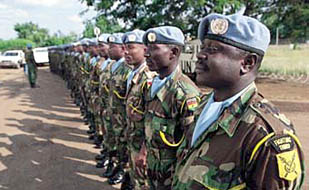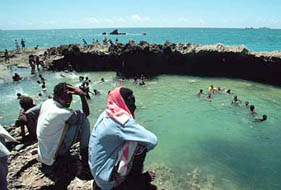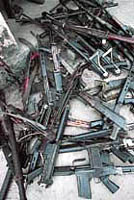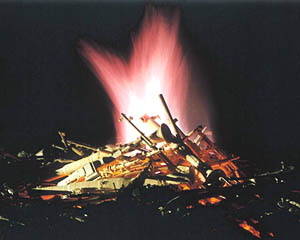International Efforts
"Small arms proliferation is not merely a security issue; it is also an issue of human rights and of development." (UN Security-General's Report (A/54/2000)
Japan proposes a Panel of Governmental Experts
The first significant, international-level assertion of addressing the issue of small arms was made by the UN Secretary-General Boutros Boutros-Ghali in his report, "Supplement to An Agenda for Peace" in 1995. At the 50th Session of the UN General Assembly, Japan introduced a draft resolution on the establishment of a panel of experts to discuss the issue. As a result of this effort, a Panel of Governmental Experts on Small Arms, comprising representatives from 16 countries, was established within the UN, with Mitsuro Donowaki, a former Japanese ambassador, serving as chairman.
In 1997 the Panel drafted a Secretary-General's Report which contained 23 recommendations. It was well received by disarmament experts around the world. In follow-up, the Group of Governmental Experts on Small Arms, comprising representatives from 23 countries, again chaired by Ambassador Mitsuro Donowaki, was formed in 1998 with a Japan-introduced UN General Assembly resolution. The group recommended 27 measures in the Secretary-General's Report issued in 1999.
 The UN Assistance Mission for Rwanda (UNAMIR), 1994. |
 An African country under a multinational force, 1993. |

Collected weapons, Africa 1997.
Activities of regional organizations and NGOs
MMany efforts have recently been made in various levels. Leading organizations and networks are as follows: European Union (EU), Organization of American States (OAS), Economic Community of West African States (ECOWAS), Organization of African Unity (OAU), Southern African Development Community (SADC), Organization for Security and Cooperation in Europe (OSCE), ASEAN Regional Forum (ARF), International Committee of Red Cross (ICRC), and International Action Network on Small Arms (IANSA).
Elements of the major recommendations contained in the UN Secretary-General's Reports
SG Report (A/52/298) prepared by the Panel of Governmental Experts on Small Arms (1997)
Measures for reduction of excessive accumulation of small arms
- The UN should adopt a proportional and integrated approach to security and development.
- The UN should support all appropriate post-conflict initiatives such as the disposal and destruction of weapons.
- The guideline should be developed in order to provide assistance to peacekeeping missions in implementing their mandates.
Measures for preventing destabilizing proliferation of small arms
- All states and relevant regional and international organizations should intensify their cooperative efforts against all aspects of illicit trafficking.
- The UN should consider the possibility of convening an international conference on the illicit arms trade in all its aspects.
SG Report (A/54/258) prepared by the Group of Governmental Experts on Small Arms (1999)
- The UN Security Council should take all appropriate measures to ensure the effective implementation of arms embargoes that relate to small arms and light weapons.
- The UN should support all appropriate post-conflict progammes related to disarmament, demobilization, and reintegration.
- All states should exercise the utmost restraint in transfers of small arms to areas in which there are ongoing conflicts.
- States should promote campaigns with the cooperation of civil society to raise the awareness of the dangers associated with the proliferation of small arms and illicit arms trafficking.
Solving the Small Arms Issue Serves for Conflict Prevention and the Basic Foundations for Development

At the "Flame of Peace" ceremony held at Timbuktu on 27 March 1996, the Mali government oversaw the destruction of thousands of small arms handed over by ex-combatants of the armed movements of northern Mali.
Back to Index
